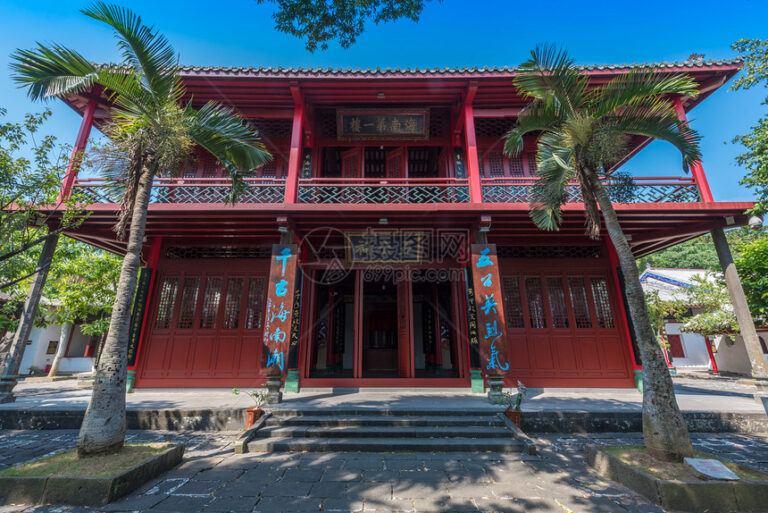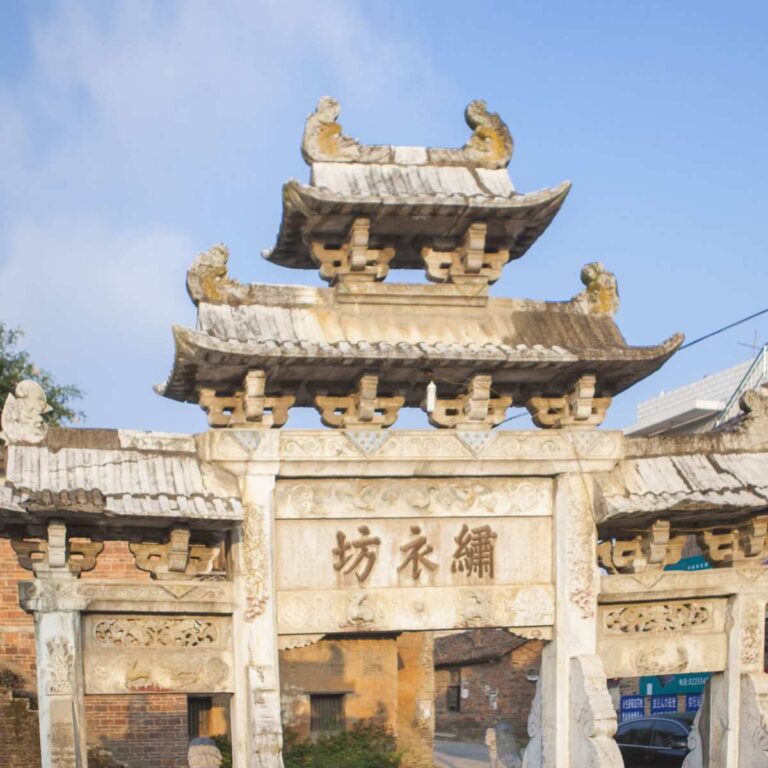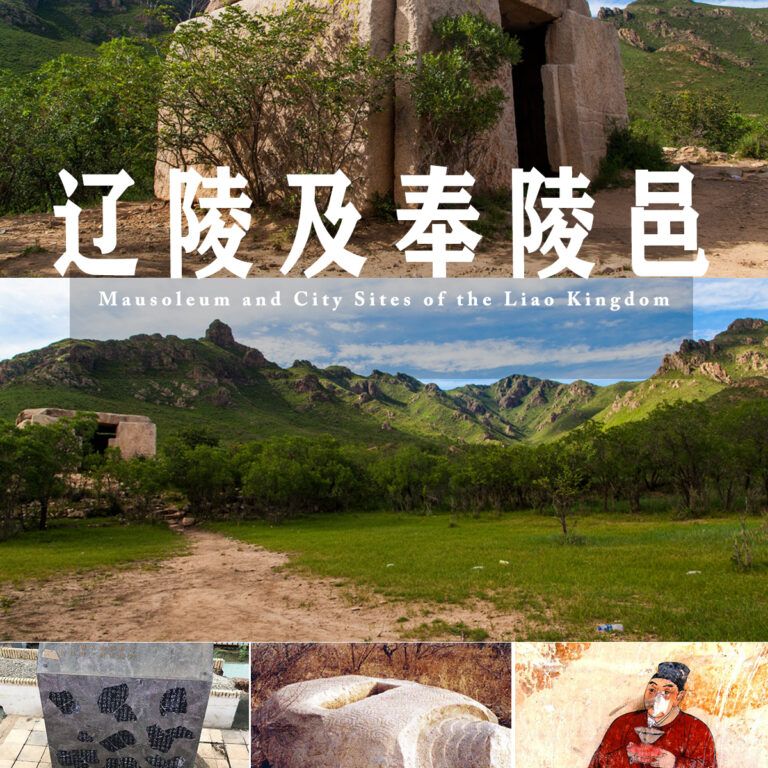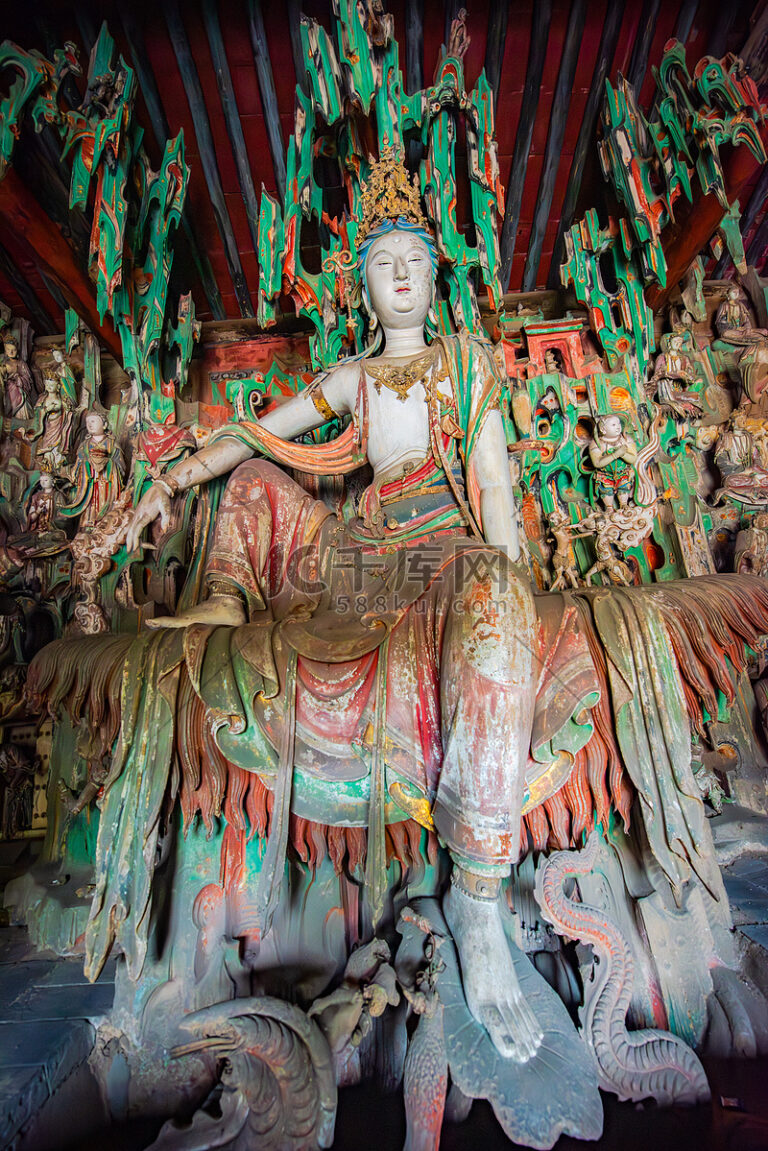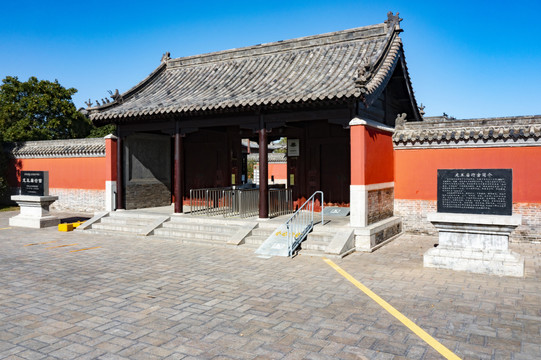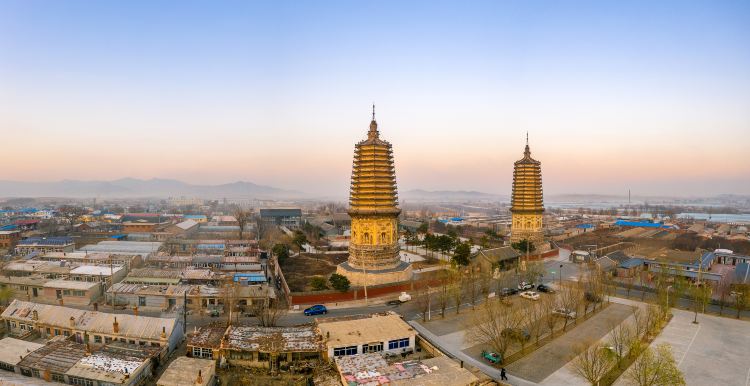Unveiling Jinhua’s Lvzuqian Ji Jiazu Mu: A Journey Through Ancestral Heritage
An Essential Guide to Visiting Jinhua Lvzuqian Ji Jiazu Mu
In This Guide
- An Essential Guide to Visiting Jinhua Lvzuqian Ji Jiazu Mu
- The Rich History of Jinhua Lvzuqian Ji Jiazu Mu
- Main Highlights: What to See at Jinhua Lvzuqian Ji Jiazu Mu
- Planning Your Visit: A Practical Guide
- Tickets, Hours, and Booking
- How to Get There
- Local Cuisine and Accommodation
- Frequently Asked Questions
- Final Thoughts on Your Trip
Nestled in the serene landscape of Jinhua, Zhejiang Province, the Jinhua Lvzuqian Ji Jiazu Mu (吕祖谦及家族墓) offers a remarkable glimpse into China’s rich cultural heritage and history. This distinguished family burial site honors the legacy of Lü Zuqian (1137-1181), a prominent philosopher, poet, and the founder of the influential Donglai School of thought during the Southern Song Dynasty. Renowned for his contributions to literature and philosophy, Lü Zuqian’s impact on Chinese intellectual history is still celebrated today.
The gravesite, located approximately 300 meters south of the Mingzhao Temple in Wuyang Town, is a testament to Lü’s profound influence, featuring a prominent tomb mound flanked by a series of ancestral graves belonging to his family members. Measuring around 30 meters in length, the main tomb is elegantly designed with a three-tiered worship platform and a well-preserved stele, embodying the artistry and reverence of the era.
Visitors to the site will find themselves enveloped in an atmosphere rich with history, surrounded by verdant hills and tranquil waters, making it not only a place of remembrance but also a serene escape into nature. As a designated provincial cultural relic, the Jinhua Lvzuqian Ji Jiazu Mu stands as a significant landmark for those interested in exploring the confluence of philosophy, literature, and the natural beauty of Zhejiang. Whether you’re a history buff, a philosophy enthusiast, or simply seeking a peaceful retreat, this ancient site promises a profound experience that resonates with the echoes of the past.
The Rich History of Jinhua Lvzuqian Ji Jiazu Mu
Nestled in the scenic landscape of Jinhua City, the Jinhua Lvzuqian Ji Jiazu Mu (墓) serves as a poignant reminder of the rich historical tapestry woven by the influential figure of Lü Zuqian and his family. Lü Zuqian (1137–1181), also known as the “Master of Donglai,” is celebrated as one of the prominent philosophers and writers of the Southern Song Dynasty. His contributions to Confucian thought and literature have earned him a revered spot in Chinese intellectual history, positioning him as a key figure in the establishment of the Jinhua school of thought.
Lü Zuqian was born in Wuzhou, present-day Jinhua, where he later became a renowned scholar. His scholarly pursuits led him to accumulate a wide following, and he gained recognition for his teachings that emphasized moral integrity and the importance of education. Not only was he an accomplished writer, but he also served in various official capacities, ultimately becoming a compiler of historical texts.
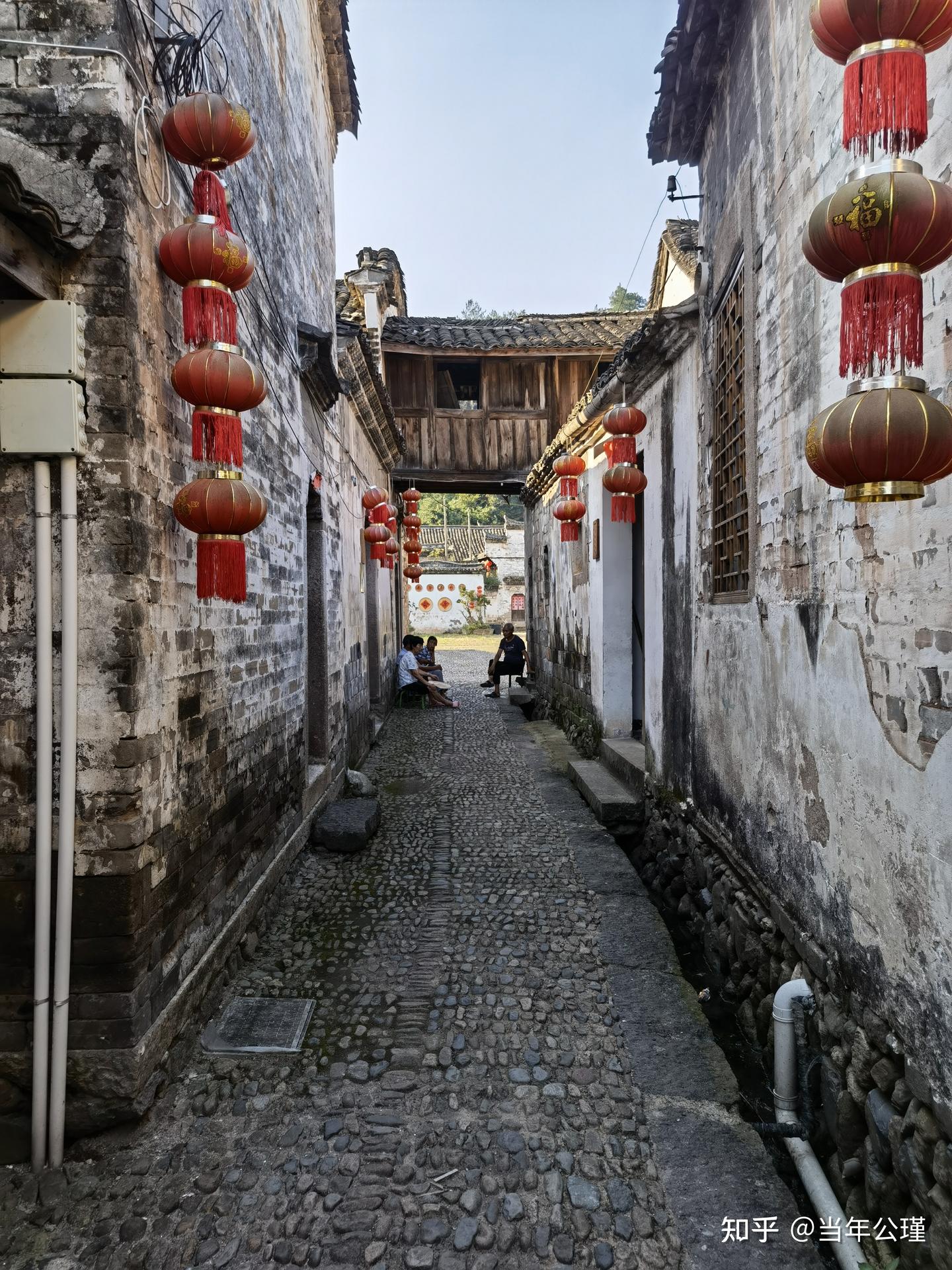
Jinhua Lvzuqian Ji Jiazu Mu.
The family tomb complex, located approximately 300 meters south of the Mingzhao Temple in Wuyang Town, comprises Lü Zuqian’s grave and those of his ancestors, including notable figures such as Lü Haowen and Lü Banzhong. The main tomb spans about 30 meters in length and features a unique three-tiered altar, adorned with a well-preserved gravestone. Surrounding Lü Zuqian’s final resting place are over ten additional graves belonging to his relatives, creating a significant burial site that reflects the family’s historical prominence.
The tomb was designated as a provincial cultural relic protection site in December 1989, acknowledging its historical and cultural significance. The surrounding area is punctuated with lush landscapes that not only enhance the site’s beauty but also align with traditional Chinese feng shui principles, which were likely considered when choosing the location for the tombs.
Lü Zuqian’s legacy extends beyond his lifetime, as the education and philosophical principles he espoused continue to influence scholars and students alike. His burial site, along with the accompanying family graves, stands as a testament to the enduring impact of his work and the respect afforded to his lineage.
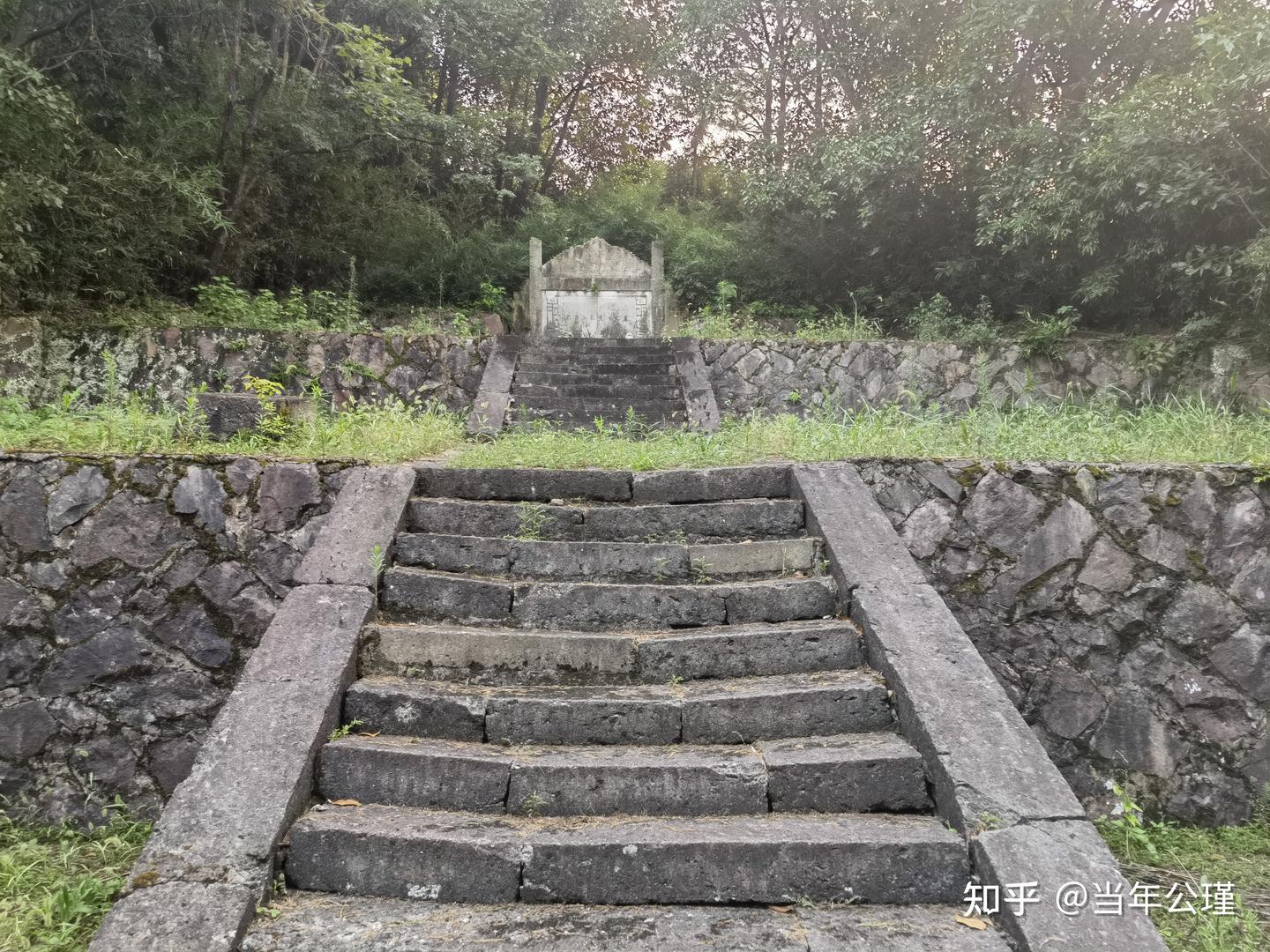
Jinhua Lvzuqian Ji Jiazu Mu.
Today, the Jinhua Lvzuqian Ji Jiazu Mu serves not only as a historical monument but also as a pilgrimage site for those wishing to pay homage to one of China’s intellectual giants. Visitors to the site can gather insights into the life of Lü Zuqian and the cultural heritage of the region, making it a vital stop for anyone interested in the rich historical narrative of Jinhua and its notable figures.
Main Highlights: What to See at Jinhua Lvzuqian Ji Jiazu Mu
Nestled in the picturesque landscape of Jinhua, Zhejiang Province, the Jinhua Lvzuqian Ji Jiazu Mu, or the Tomb of Lv Zuqian and His Family, offers a remarkable glimpse into the rich cultural heritage of the Southern Song Dynasty. Here are some key highlights that make this site a must-visit for history and culture enthusiasts:
-
Historical Significance: This tomb complex is dedicated to Lv Zuqian (1137-1181), a prominent philosopher, writer, and founder of the Eastern Zhejiang School of Confucianism. His contributions to Chinese thought and literature during the Southern Song period are highly regarded, making his burial site a significant landmark for scholars and visitors alike.
-
Architectural Features: The tomb itself is an impressive structure, measuring approximately 30 meters in length and surrounded by a series of terraces and ceremonial altars. The main tombstone remains, along with several other family graves, including those of his ancestors and siblings, showcasing traditional burial practices and artistic stonework from the era.
-
Scenic Location: Situated 300 meters south of Mingzhao Temple in Wuyang Town, the tomb is enveloped by lush greenery and serene mountain views, creating a tranquil atmosphere perfect for reflection and exploration. It’s a peaceful retreat from the bustle of modern life, offering visitors a chance to connect with nature and history.
-
Cultural Legacy: The site is not only a resting place for Lv Zuqian but also serves as a reminder of the rich cultural lineage of the Lv family. Visitors can explore over ten other tombs belonging to family members, including notable figures such as Lv Haowen and Lv Banzhong, highlighting the family’s historical prominence in the region.
-
Educational Opportunities: The tomb complex is part of a broader historical narrative that includes the development of Confucianism in China. It presents an opportunity for educational tours and discussions about ancient Chinese philosophy, making it an ideal destination for students and educators.
-
Accessibility: As a provincial cultural heritage site, it is easily accessible to tourists and locals alike. The surrounding area also boasts additional attractions, such as Mingzhao Temple and other historical sites, making it an excellent stop on a larger cultural tour of Jinhua.
Visiting the Jinhua Lvzuqian Ji Jiazu Mu offers a unique opportunity to step back in time and appreciate the profound impact of one of China’s significant intellectual figures while enjoying the natural beauty of the region.
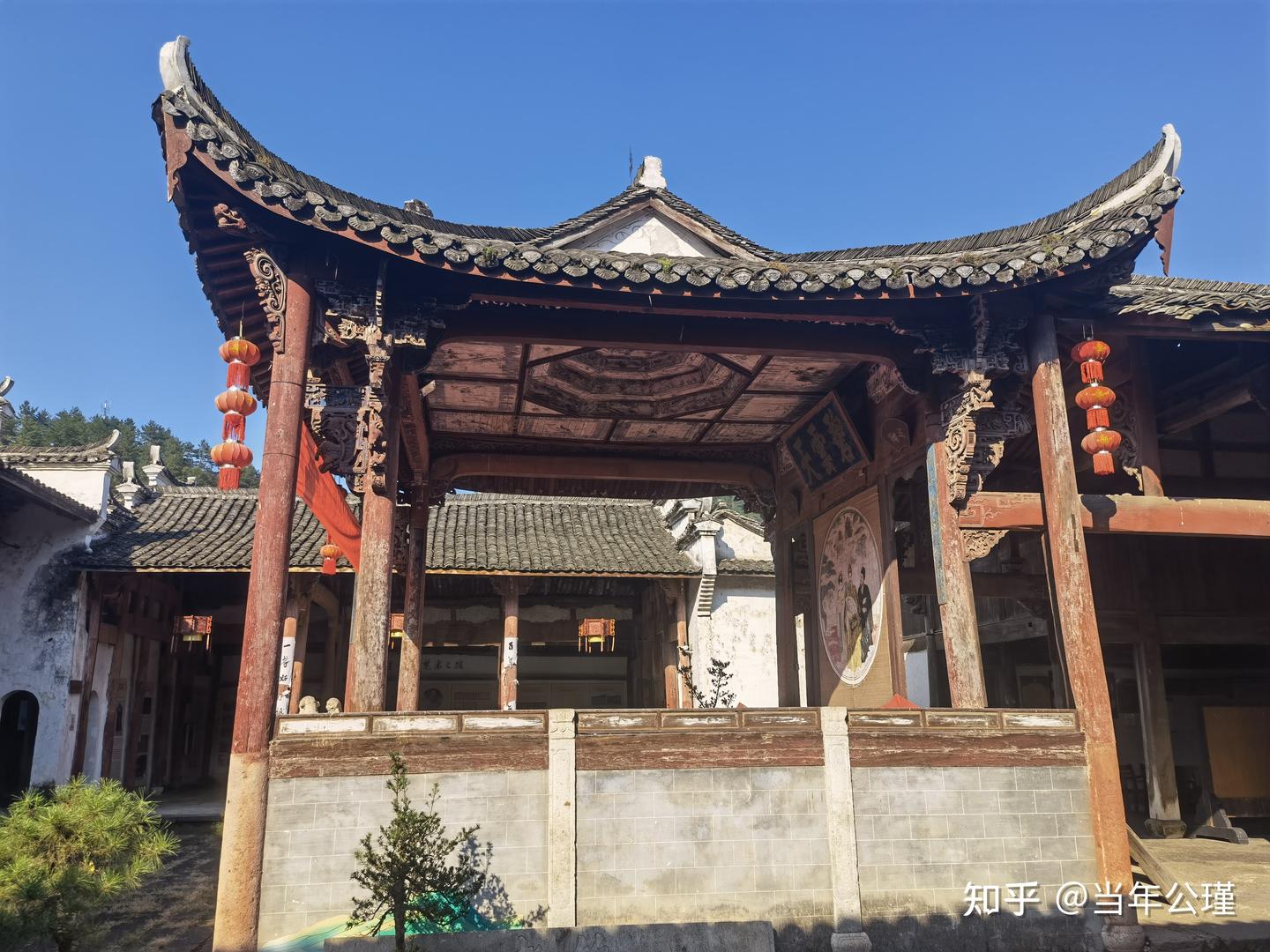
Jinhua Lvzuqian Ji Jiazu Mu.
Planning Your Visit: A Practical Guide
Visiting the Jinhua Lvzuqian Ji Jiazu Mu (吕祖谦及家族墓) offers a unique glimpse into the cultural and historical fabric of China, particularly during the Southern Song Dynasty. This practical guide aims to assist visitors in making the most of their trip to this significant site located in Jinhua, Zhejiang Province.
Getting There
Location:
The tomb complex is situated approximately 300 meters south of Mingzhao Temple in Wuyang Town, Jinhua City. It is easily accessible by car or public transportation. If you are traveling from central Jinhua, you can take a taxi or a local bus to reach Wuyang Town.
Public Transport:
Local buses frequently run from Jinhua’s main bus station to Wuyang Town. Check local schedules for the most current routes and times.
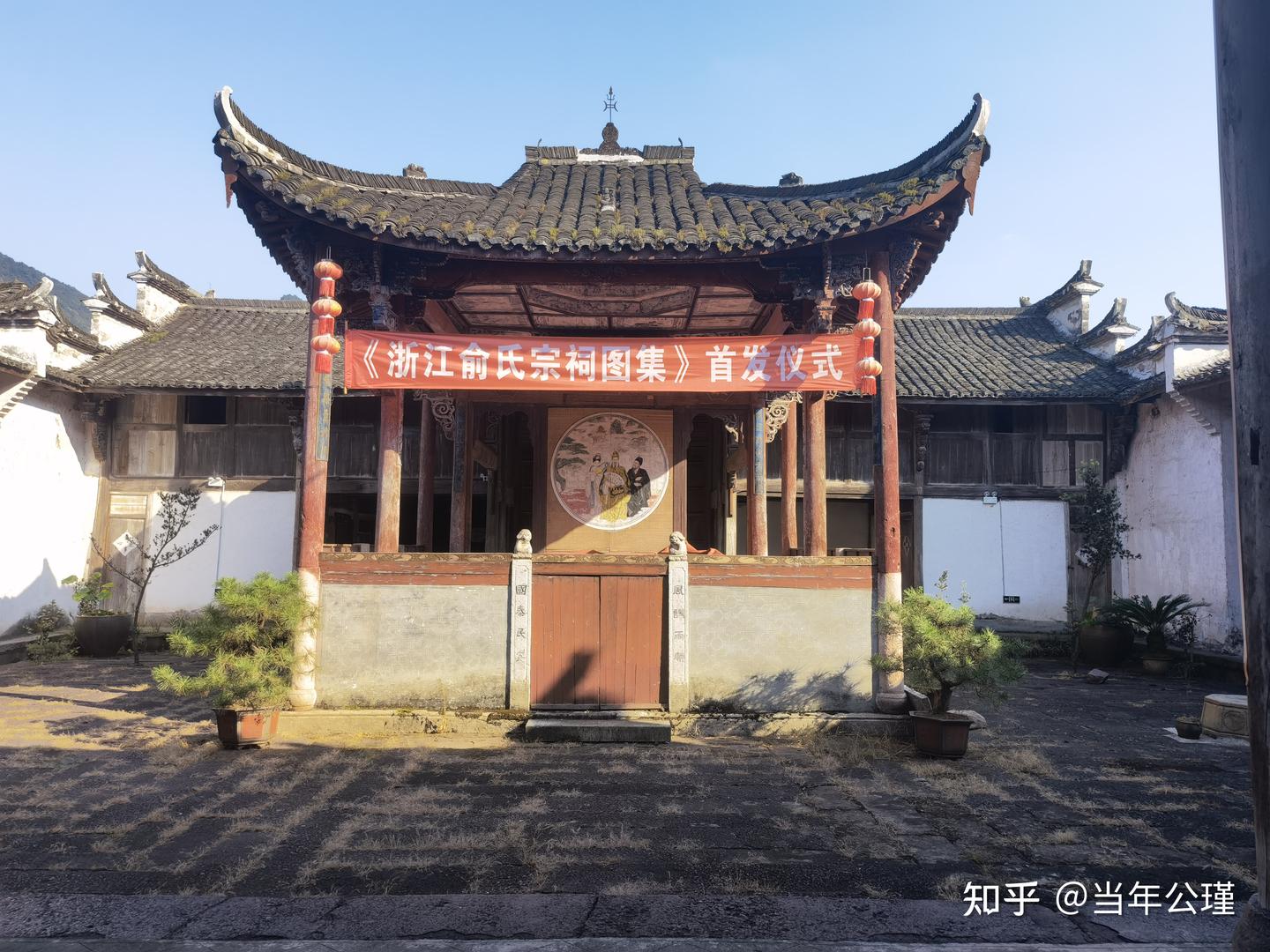
Jinhua Lvzuqian Ji Jiazu Mu.
Opening Hours and Admission
Opening Hours:
The site is generally open year-round. However, it is advisable to check for any seasonal changes in hours or special closures, particularly during Chinese national holidays.
Admission Fee:
As of the latest updates, entry to the Jinhua Lvzuqian Ji Jiazu Mu is free. However, certain guided tours or associated activities may have a fee. Always confirm current pricing before your visit.
What to Expect
The Jinhua Lvzuqian Ji Jiazu Mu is not just a tomb but a historical complex that includes the graves of multiple generations of the Lu family, including the notable philosopher and writer Lu Zuqian (1137-1181). His tomb features a distinct structure measuring approximately 30 meters in length, with a width of 23 meters at the base and 15 meters at the top, complemented by a three-tiered ceremonial platform.
Key Features:
– Tomb of Lu Zuqian: Explore the main tomb and its striking architecture, which reflects traditional Chinese burial customs.
– Family Graves: The complex includes over ten other tombs belonging to Lu Zuqian’s ancestors and relatives, offering deeper insights into the family’s history.
– Ceremonial Platform: The three-tiered altar adds to the site’s cultural significance, often used for commemorative ceremonies.
Nearby Attractions
After visiting the tomb, consider exploring the surrounding area, which is rich in cultural sites:
– Mingzhao Temple: A short walk from the tomb, this temple is significant in its own right and offers a tranquil setting for reflection.
– Dalaite Terraces: Known for their stunning landscapes, these rice terraces are a fantastic spot for photography and experiencing rural life.
– Xuying Martyr Memorial Museum: A place honoring revolutionary heroes, providing a glimpse into the region’s modern history.
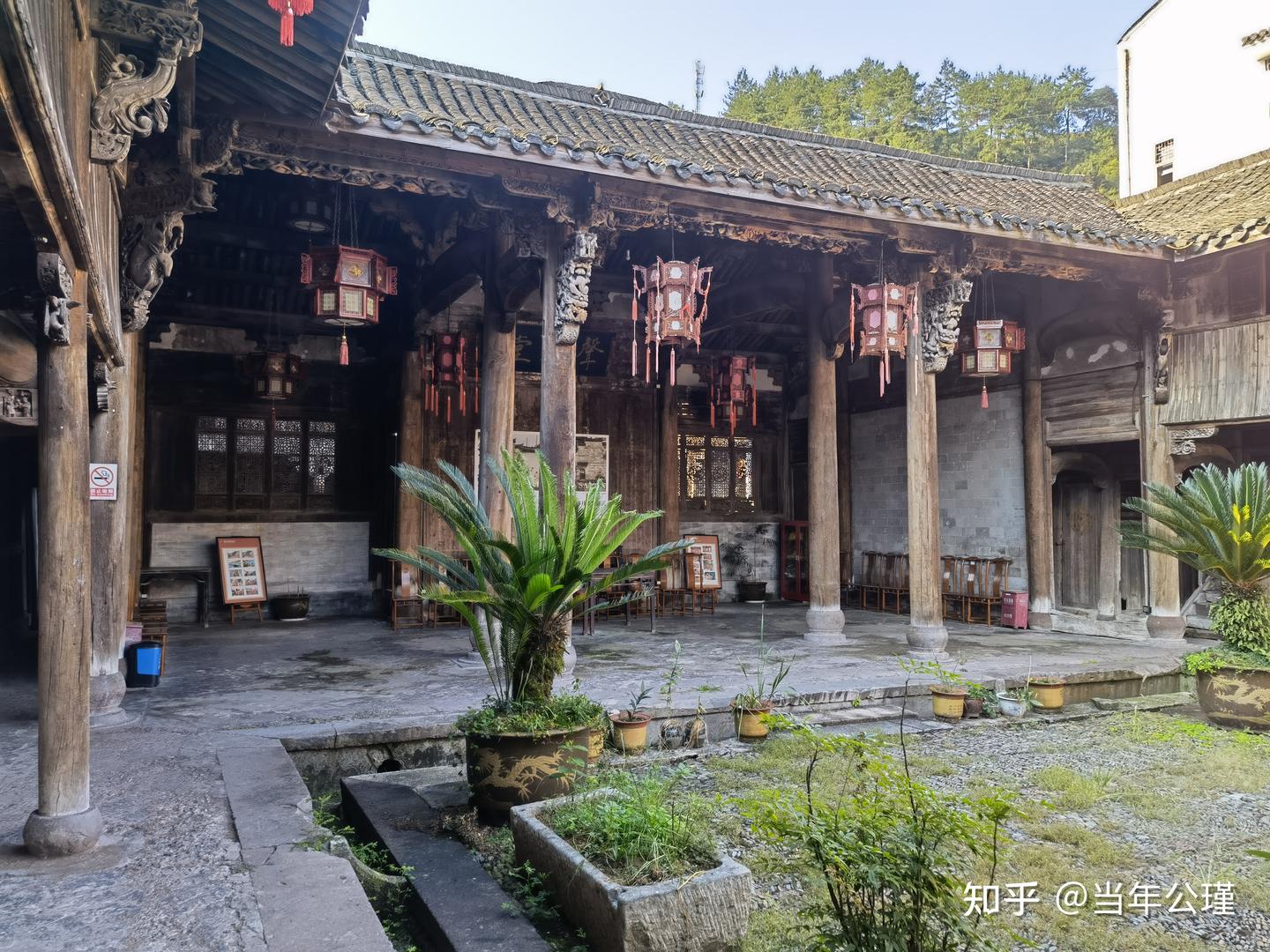
Jinhua Lvzuqian Ji Jiazu Mu.
Practical Tips
- Best Time to Visit: The ideal time to visit is during spring (March to May) and autumn (September to November) when the weather is pleasant and the scenery is at its best.
- Dress Code: Wear comfortable shoes, as the site involves walking on uneven terrain. Dressing modestly is recommended, especially when visiting temples.
- Guided Tours: Consider hiring a local guide to gain a richer understanding of the history and significance of the site. English-speaking guides may be available, but it’s wise to book in advance.
- Local Cuisine: Don’t miss trying local delicacies in Jinhua, such as the famous Jinhua ham and various tea products. Look for restaurants nearby to enhance your cultural experience.
Conclusion
The Jinhua Lvzuqian Ji Jiazu Mu offers not only a historical journey but also a serene escape into the natural beauty of Zhejiang Province. With this practical guide, you are well-equipped to explore the rich tapestry of history and culture that this remarkable site has to offer. Enjoy your visit!
Tickets, Hours, and Booking
When planning a visit to the Jinhua Lvzuqian Ji Jiazu Mu (吕祖谦及家族墓), it’s essential to know the ticketing details to ensure a smooth experience.
Ticket Information
-
Admission Fee: Entrance to the Jinhua Lvzuqian Ji Jiazu Mu is generally free of charge, making it an accessible destination for all visitors interested in history and culture.
-
Guided Tours: While general admission is free, consider joining a guided tour for a more enriching experience. Many local guides offer their services at a nominal fee, which can enhance your understanding of the site’s significance and the historical context surrounding it.
-
Opening Hours: The site is typically open year-round, but it’s advisable to check local updates or notices for any changes in operating hours, especially during public holidays or special events.
-
Best Time to Visit: To avoid crowds and enjoy a peaceful atmosphere, visiting during weekdays is recommended. Early mornings or late afternoons often provide the best light for photography and a serene experience.
-
Location Details: The mausoleum is situated 300 meters south of the Mingzhao Temple in Wuyang Town, making it easy to combine visits to both sites in one trip.
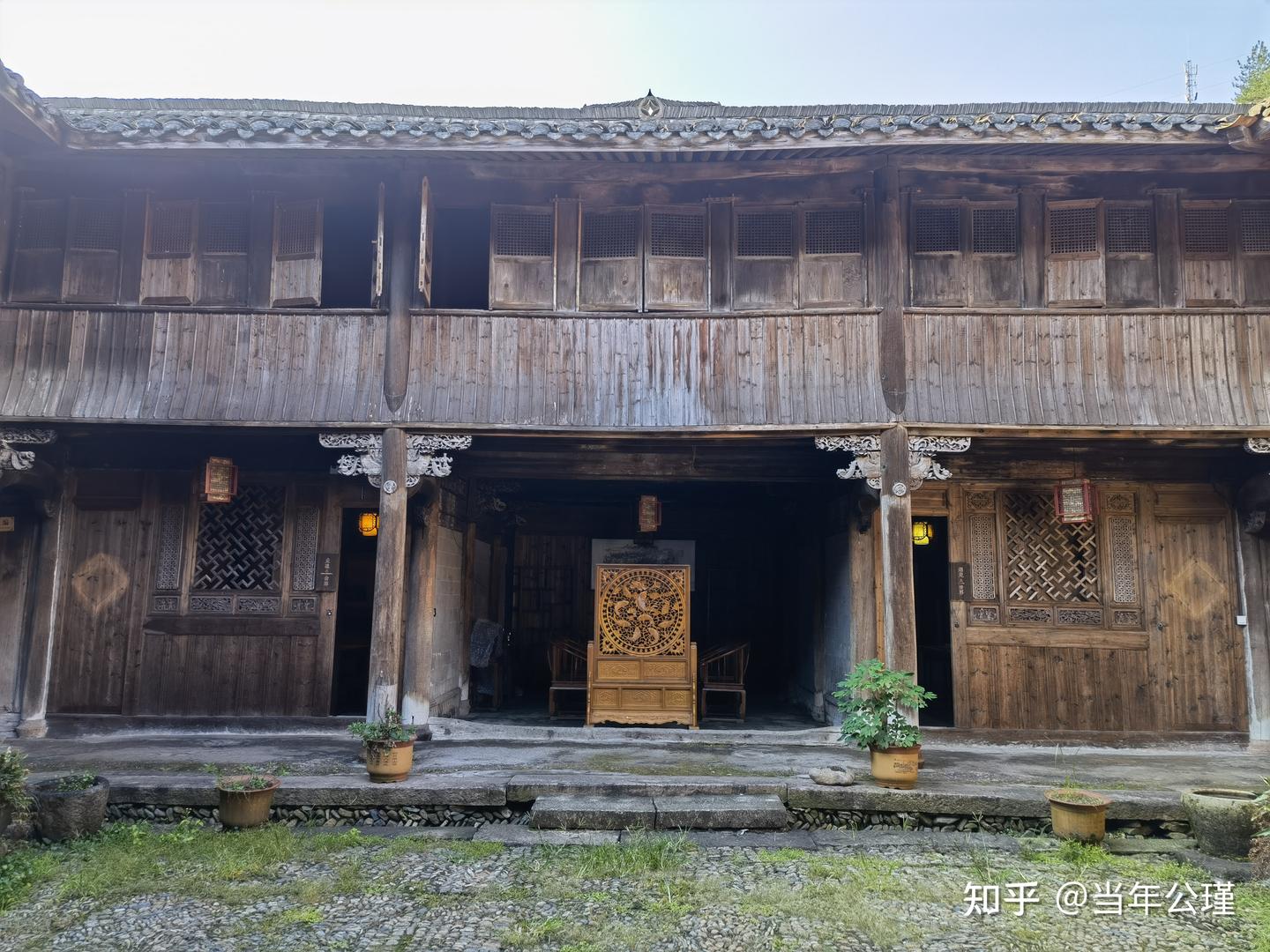
Jinhua Lvzuqian Ji Jiazu Mu.
By keeping these details in mind, visitors can fully appreciate the significance of the Jinhua Lvzuqian Ji Jiazu Mu and enjoy their exploration of this historical site without any hassle.
How to Get There
Reaching the Jinhua Lvzuqian Ji Jiazu Mu (吕祖谦及家族墓), located in the Wuyi County of Jinhua, Zhejiang Province, is a straightforward endeavor, thanks to its strategic location and accessible transportation options.
By Air
The nearest major airport is Yiwu Airport (YIW), approximately 20 kilometers away from the site. This airport serves both domestic and limited international flights. From Yiwu Airport, visitors can take a taxi or pre-arranged shuttle to reach Jinhua, which typically takes around 30 minutes.
By Train
Jinhua is well-connected by train, with the Jinhua Railway Station serving as a significant hub on the Hangzhou-Shenzhen High-Speed Railway. Once you arrive at Jinhua Railway Station, you can take a local bus or taxi to Wuyi County, where the tomb is located. The train journey to Jinhua from major cities like Hangzhou or Shanghai is efficient, with travel times ranging from 1.5 to 3 hours depending on the service.
By Bus
For those traveling by bus, Jinhua and Wuyi are accessible via several long-distance bus services. Buses to Wuyi depart from the Jinhua Long-Distance Bus Station and typically run every hour. The journey takes about 1 hour and 15 minutes. Ensure to check the schedule ahead of time, as services may vary by day.
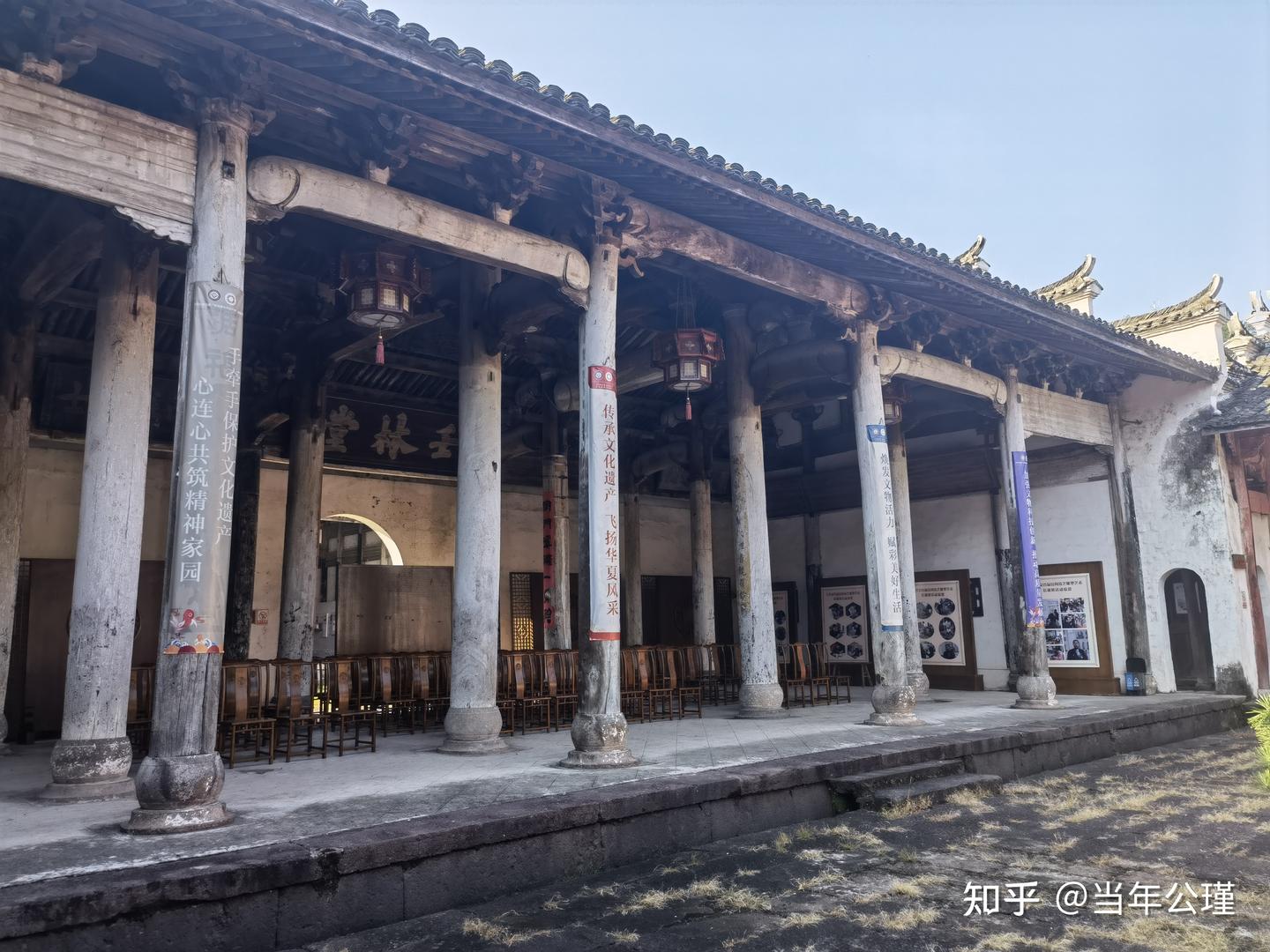
Jinhua Lvzuqian Ji Jiazu Mu.
Local Transportation
Once in Wuyi County, taxis and local buses are the primary modes of transportation to the Jinhua Lvzuqian Ji Jiazu Mu. Taxis are readily available and can be hailed or booked through local ride-hailing apps. If you’re interested in exploring the area further, consider renting a bicycle or scooter for a more leisurely journey through the scenic landscape surrounding the tomb.
Tips for Visitors
- Language: English may not be widely spoken in this area, so having a translation app or a phrasebook can be beneficial.
- Best Time to Visit: The best time to visit is during the spring and autumn months when the weather is mild and pleasant for outdoor exploration.
- Nearby Attractions: While you’re in the area, consider visiting other historical sites such as the Ming Zhao Temple and the scenic Dalaite Terraces, which are not far from the tomb.
With these transportation options, visiting the Jinhua Lvzuqian Ji Jiazu Mu becomes a seamless part of your travel itinerary, allowing you to immerse yourself in the rich history and serene beauty of the region.
Local Cuisine and Accommodation
When visiting the Jinhua Lvzuqian Ji Jiazu Mu, you’ll want to indulge in the local flavors and find a comfortable place to stay. Here’s a guide to the best food and accommodation options in and around this historical site.
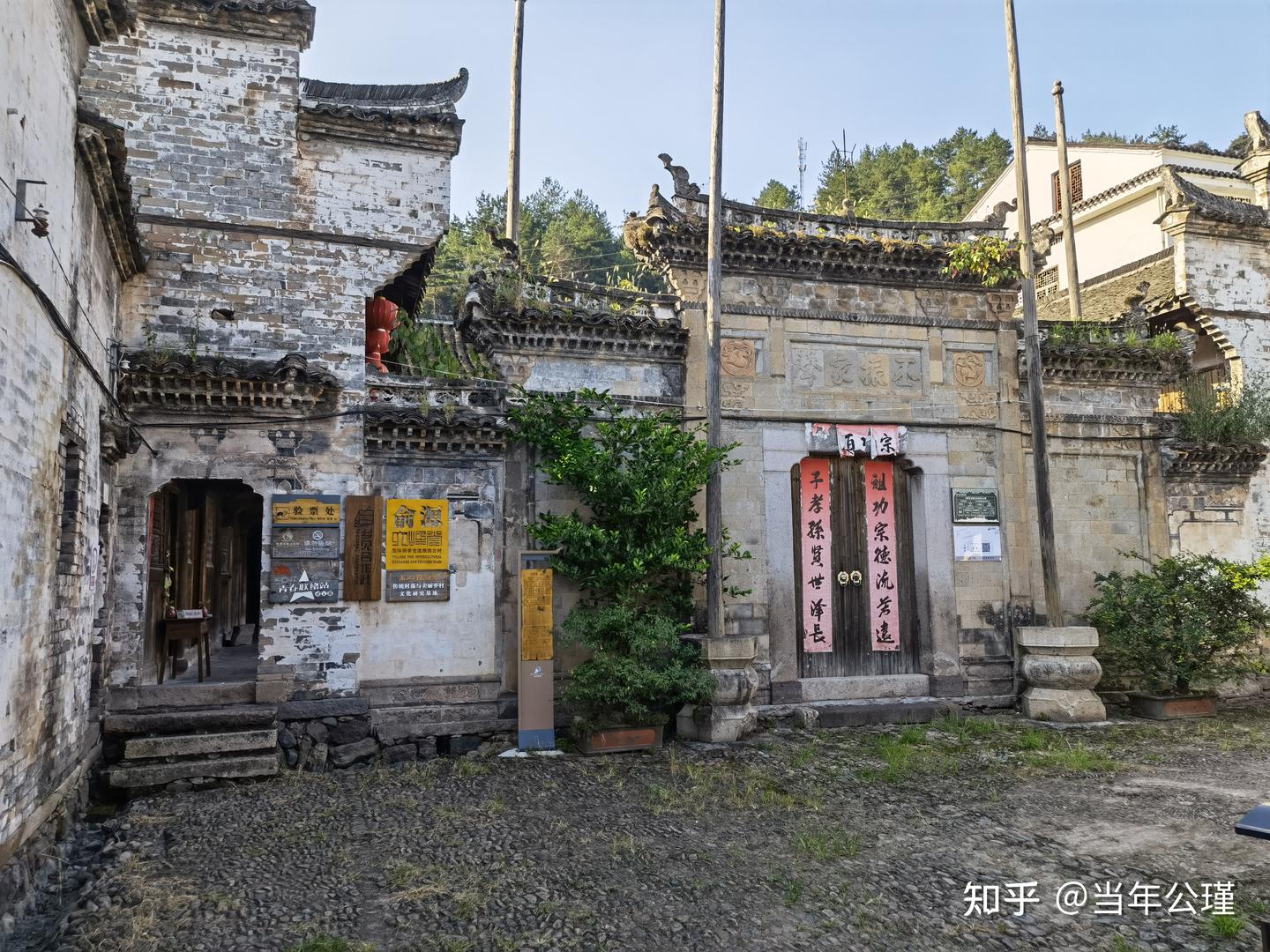
Jinhua Lvzuqian Ji Jiazu Mu.
Dining Options
Local Delights
-
Dongyang Ham: A specialty from the nearby Dongyang area, this cured ham is renowned for its rich flavor and is often used in various local dishes. Be sure to try it sliced thin in a stir-fry or served with rice.
-
Wuyi Mountain Tea: Jinhua is famous for its tea, particularly the Wuyi Mountain varieties. Visit a local tea shop to enjoy a cup, or purchase some to take home as a unique souvenir.
-
Yiwuhuo Meat Pie: A beloved snack in the region, these savory meat pies are filled with a mixture of meats and spices, making for a delicious on-the-go treat as you explore.
-
Stir-fried Bamboo Shoots: Fresh bamboo shoots are a seasonal delight, often stir-fried with garlic and served as a side dish. Look for local restaurants that offer seasonal specials.
-
Xihu Sweet Rice Wine: This traditional beverage is sweet and slightly alcoholic, perfect for pairing with your meals. It’s often served warm and can be found at local eateries.
Recommended Restaurants
-
Wang’s Restaurant: Located close to the site, this venue specializes in local dishes featuring fresh ingredients from the region. The ambiance is cozy, making it a great place to unwind after a day of sightseeing.
-
Dongyang Cuisine House: Offering a variety of traditional dishes, this restaurant is known for its selection of local specialties, including stir-fried vegetables and meats that showcase the flavors of the region.
Accommodation
Hotels and Guesthouses
-
Jinhua Grand Hotel: This upscale hotel offers comfortable rooms with modern amenities. Located conveniently near the city center, it’s perfect for travelers looking for luxury after a day of exploring.
-
Wuyi Mountain Inn: For a more intimate experience, consider this charming inn. With traditional decor and a warm atmosphere, it’s an excellent choice for those wanting to immerse themselves in local culture.
-
Zhejiang Business Hotel: A budget-friendly option that doesn’t skimp on comfort. This hotel provides essential amenities and is located within easy reach of popular attractions, including the Lvzuqian family tomb.
-
Hostel 88: Ideal for backpackers and budget travelers, this hostel offers dormitory-style accommodations and a communal kitchen. It’s a great place to meet fellow travelers and share experiences.
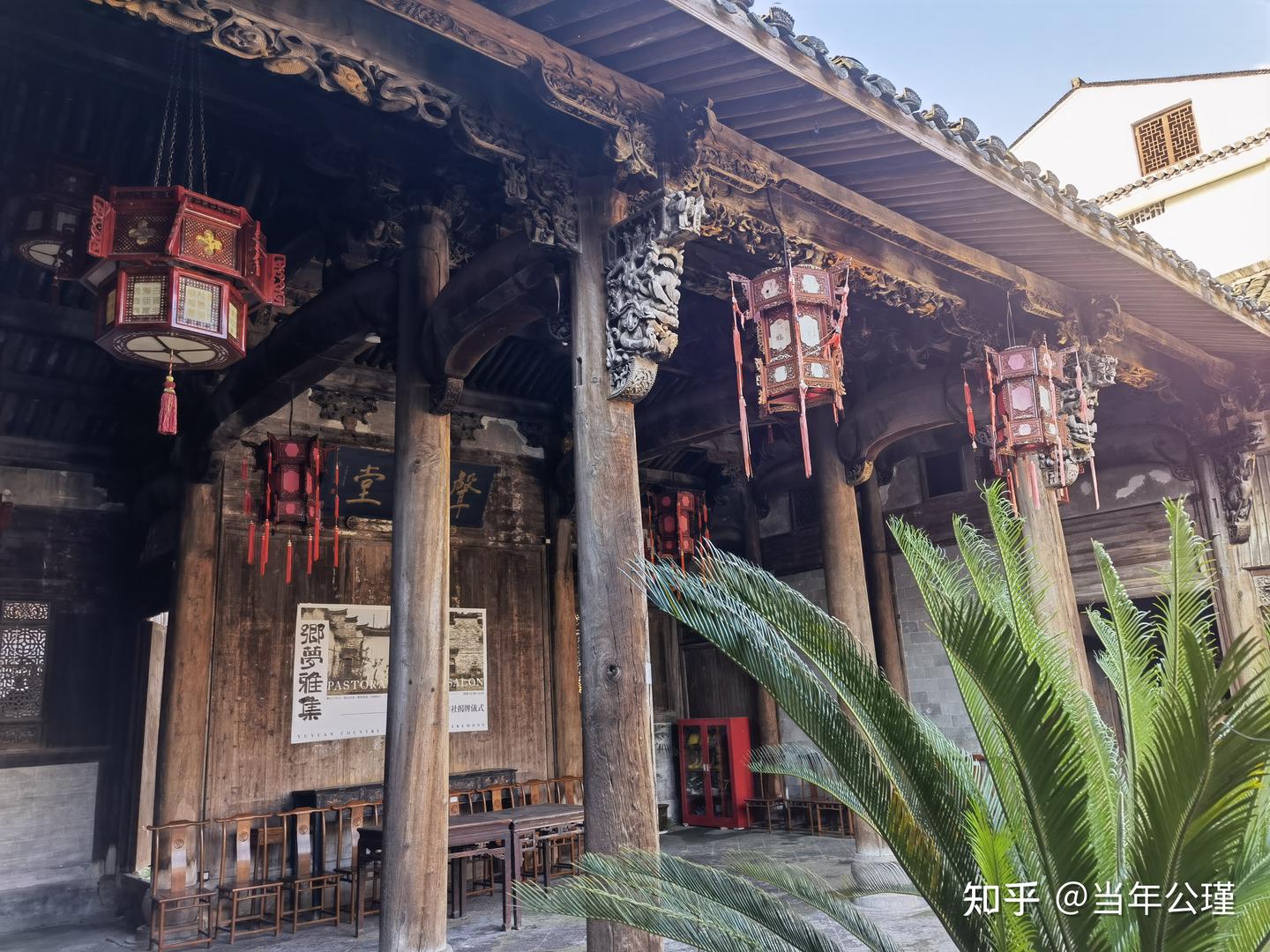
Jinhua Lvzuqian Ji Jiazu Mu.
Unique Stays
- Local Homestays: Experience authentic local life by staying in a homestay. Many families in the area offer rooms in their homes, providing a unique perspective on Jinhua culture and cuisine.
Regardless of your preferences, Jinhua offers a variety of culinary delights and accommodations to suit every traveler’s needs. Enjoy your visit to the historical and cultural landmark of the Lvzuqian family tomb!
Frequently Asked Questions
Frequently Asked Questions
-
What is the significance of Jinhua Lvzuqian Ji Jiazu Mu?
The Jinhua Lvzuqian Ji Jiazu Mu, or the tomb of Lv Zuqian and his family, is a notable cultural and historical site located in Jinhua, Zhejiang Province. It serves as the burial ground for the renowned Southern Song dynasty philosopher and writer, Lv Zuqian, who was a significant figure in Chinese literature and philosophy. -
How do I get to the tomb?
The tomb is located approximately 300 meters south of Mingzhao Temple in Wuyang Town, Jinhua. Visitors can access the area by public transportation or private vehicle. The site is well-marked, making it easy to find. -
Is there an entrance fee to visit the site?
No, visiting the Jinhua Lvzuqian Ji Jiazu Mu is free of charge. However, it is advisable to check for any updates or changes regarding visitor access before planning your trip. -
What are the main features of the tomb complex?
The tomb complex includes a main burial mound approximately 30 meters long, with a width of 15 to 23 meters. Visitors can also see a three-level altar in front of the tomb, along with several other family graves, such as those of Lv Hao Wen and Lv Ben Zhong. -
Are there any nearby attractions worth visiting?
Yes, the area around the tomb is rich in cultural heritage. Nearby attractions include Mingzhao Temple, the scenic Dalaite Terraces, and the historical Xu Ying Lie Memorial Hall, making it an ideal spot for a day of exploration. -
What is the best time of year to visit the tomb?
The best time to visit is during the spring and autumn months (March to May and September to November), when the weather is mild and the landscape is particularly beautiful. This is also when you can enjoy the lush scenery surrounding the tomb. -
Can I take photographs at the tomb?
Yes, visitors are generally allowed to take photographs at the tomb complex. However, it is important to be respectful of the site and those who are visiting for quiet reflection or remembrance. -
Are there any guided tours available?
While there may not be formal guided tours specifically for the tomb, local tourism offices or visitor centers may offer information and assistance. It is a good idea to check with them for any organized tours that could enhance your experience in the Jinhua area.
Final Thoughts on Your Trip
Visiting the Jinhua Lvzuqian Ji Jiazu Mu offers more than just a glimpse into the rich tapestry of Chinese history; it serves as a bridge connecting present-day visitors to the profound wisdom and legacy of the Southern Song Dynasty philosopher and writer, Lv Zuqian. This site, nestled within the serene landscapes of Jinhua, is not only a resting place for a remarkable family but also a testament to the enduring influence of Confucian thought and the cultural evolution of the region.
As you stand before the majestic tombs and the intricate stone structures, you are reminded of the generations that came before and the ideals they championed. The site invites reflection on the values of education, family, and philosophical inquiry that are as relevant today as they were centuries ago.
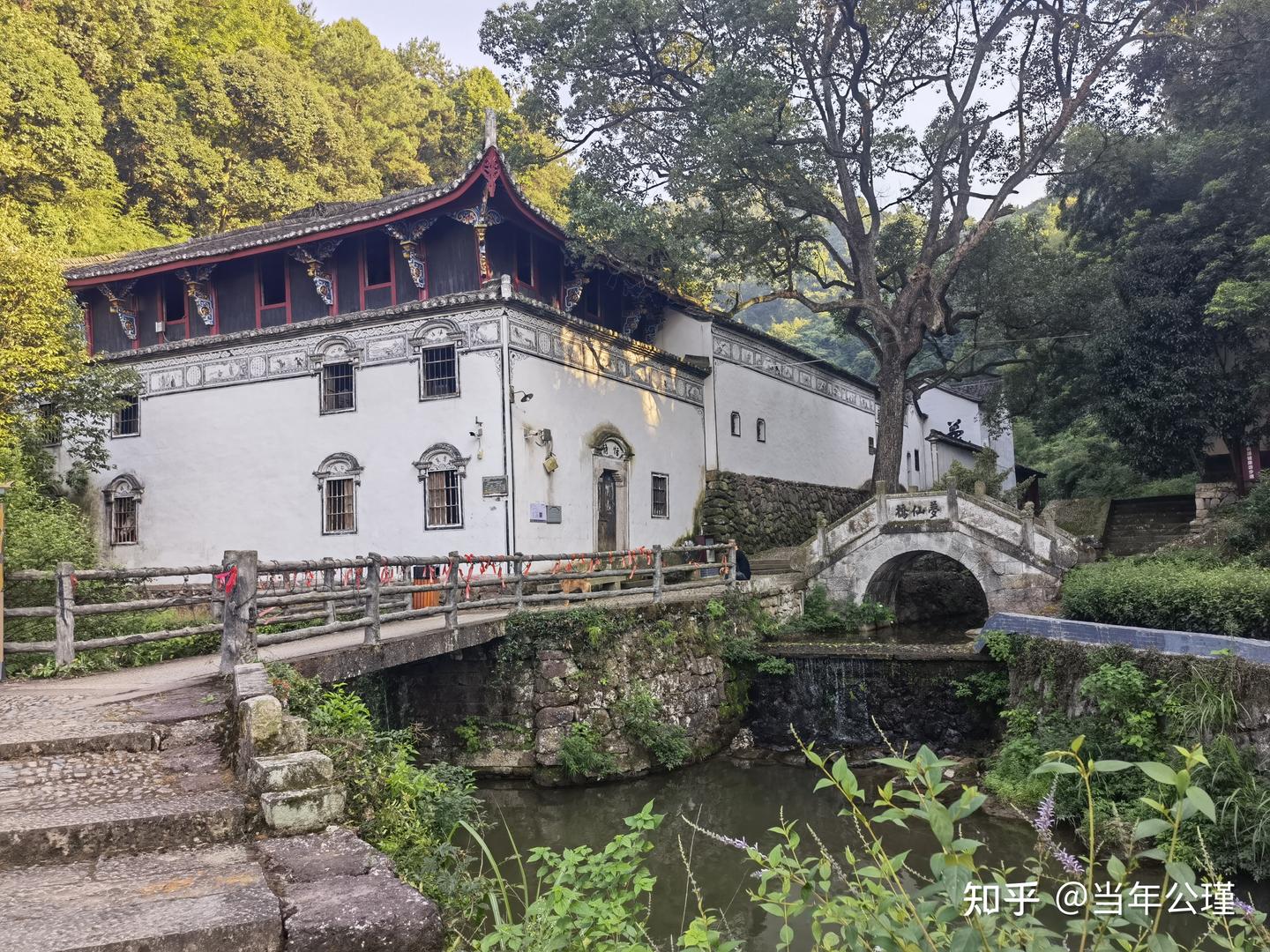
Jinhua Lvzuqian Ji Jiazu Mu.
Surrounded by the tranquil beauty of the hills and the historical significance of the surrounding monuments, a visit to the Lvzuqian family tomb is an enriching experience that resonates with anyone seeking a deeper understanding of Chinese culture. Whether you’re a history enthusiast, a lover of philosophy, or simply a traveler in search of meaning, this sacred site is sure to leave a lasting impression, encouraging you to explore the past while contemplating your own journey in the world.
